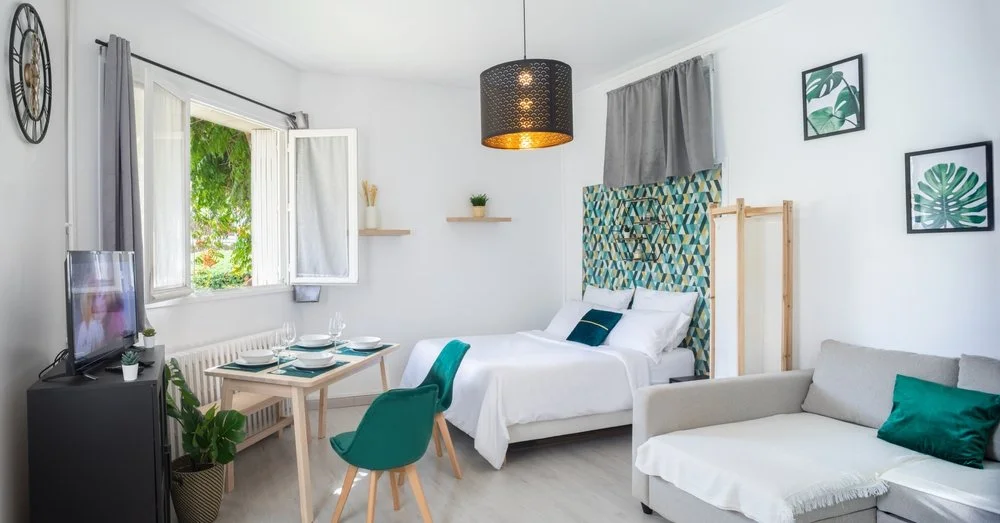Differences Between Short-Term Rentals and Vacation Rentals
When it comes to property rentals in Massachusetts, understanding the differences between short-term and vacation rentals is key to maximizing your investment. Though often used interchangeably, these terms have distinct differences that can affect your management strategy, target market, and bottom line. Unlike a hotel room, which offers a more standardized experience, vacation rentals provide a home-like atmosphere, allowing travelers to immerse themselves in local culture and enjoy unique, personalized settings. Keep reading to explore these differences and learn how they can boost your rental business.
Definition of Vacation Rentals
Vacation rentals, also known as short-term vacation rentals, refer to properties that are rented out to travelers on a short-term basis, typically ranging from a few days to several weeks or months. These properties can include apartments, houses, condos, villas, and even unique accommodations like treehouses or castles. Vacation rentals offer a more homey and personalized experience for travelers, often providing amenities like fully equipped kitchens, laundry facilities, and private spaces.
Definition of Short-Term Rentals
Short-term rentals, on the other hand, refer to properties that are rented out for a shorter period, usually less than six months. These rentals can be used for various purposes, such as business trips, vacations, or temporary housing. Short-term rentals can be found in various forms, including apartments, houses, and even shared accommodations like hostels or guesthouses.
Short-Term Rentals vs. Vacation Rentals
Short-Term Rentals
Properties that are rented out for brief durations, usually lasting fewer than 30 days, are known as short-term rentals. A worldwide boom has resulted from the increasing demand for short-term rental units, highlighting the sharing economy's need for community involvement and compliance. These properties are usually found in suburban or metropolitan settings and serve a wide range of customers, such as locals in need of temporary lodging, business visitors, and urban explorers.
Key characteristics of short-term rentals:
Located in residential or mixed-use areas
Often furnished apartments or homes
Flexible booking periods (from one night to several weeks)
Attract a mix of business and leisure travelers
Vacation Rentals: The Leisure Retreats
Vacation rentals, on the other hand, are properties specifically designed and marketed for leisure travelers. These are often second homes or investment properties in popular tourist destinations, offering a "home away from home" experience for vacationers.
Key characteristics of vacation rentals:
-Located in tourist hotspots or scenic areas
Range from cozy cabins to luxurious villas
Typically booked for longer periods (a week or more)
Cater primarily to leisure travelers and families
Location, Location, Location: The Geographical Divide
Urban Convenience vs. Scenic Getaways
One of the biggest differences between short-term rentals and vacation rentals lies in their location. Local governments influence the regulations surrounding short-term rentals, providing information regarding licensing and specific allowances for different types of properties. Short-term rentals are often found in the heart of cities or near business districts, offering convenience for corporate travelers or urban tourists. These properties might be sleek downtown apartments or trendy lofts in up-and-coming neighborhoods.
Vacation rentals, conversely, are typically situated in areas known for their natural beauty, recreational opportunities, or cultural significance. Think beachfront condos, mountain chalets, or charming cottages in historic towns. The location of a vacation rental is often a key selling point, promising an escape from the everyday grind.
Target Audience: Business Suits or Beach Shorts?
The Corporate Traveler vs. The Leisure Seeker
Business travelers needing a comfortable space for work and rest
Urban explorers looking for an authentic local experience
Transitional residents (e.g., those relocating or renovating their homes)
Vacation rentals, by contrast, primarily target:
Families and groups seeking shared accommodation for their getaways
Couples looking for romantic retreats
Adventure seekers wanting a base for outdoor activities
Recognizing these differences allows property owners to tailor their offerings and marketing strategies accordingly. For instance, a short-term rental might highlight its proximity to business centers and public transport, while a vacation rental would showcase its stunning views or access to local attractions.
Amenities and Services: Tailoring the Experience
Work-Ready vs. Play-Ready
The amenities offered in short-term and vacation rentals often reflect the needs of their target audiences. Short-term rentals typically prioritize amenities that cater to work and convenience:
High-speed Wi-Fi and dedicated work spaces
Smart home features for easy check-in and security
In-unit laundry facilities
Proximity to public transportation
Vacation rentals, on the other hand, focus on leisure and relaxation:
Fully equipped kitchens for family meals
Outdoor spaces like balconies, patios, or private pools
Entertainment systems and game rooms
Access to recreational equipment (e.g., bikes, kayaks, or beach gear)
Booking Patterns and Seasonality: Navigating the Peaks and Valleys
Steady Flows vs. Seasonal Surges
Understanding booking patterns is crucial for maximizing occupancy and revenue. Short-term rentals often see more consistent demand throughout the year, especially in business-eccentric locations. However, short-term leases can lead to low-season vacancies and require increased tenant management and communication compared to long-term leases. They might experience slight dips during holidays but generally maintain steady occupancy rates.
Vacation rentals are particularly prone to seasonal swings. Peak seasons (such as summer for beach locations or winter for ski resorts) can result in high occupancy and premium rates, whilst off-seasons may experience severe downtime.
To navigate these differences:
Short-term rental owners should focus on building relationships with local businesses and offering competitive rates for extended stays.
Vacation rental owners need to implement dynamic pricing strategies and consider offering special packages or discounts during off-peak periods to boost occupancy.
Property Management Considerations: Balancing Act vs. Seasonal Sprint
Year-Round Attention vs. Peak Season Intensity
The management needs of short-term and vacation rentals can differ significantly:
Short-term rentals often require:
More frequent turnovers and cleanings
Quick response times for guest inquiries and issues
Ongoing maintenance to maintain a professional standard
Attention to business traveler needs (e.g., reliable Wi-Fi, workspace)
Vacation rentals might need:
More intensive preparation for peak seasons
Management of longer guest stays
Maintenance of outdoor areas and recreational amenities
Local knowledge to enhance the guest experience
For both types of rentals, professional management services like those offered by Wilkuma can be invaluable in navigating these unique challenges, ensuring smooth operations and maximizing property potential.
Benefits of Vacation Rentals
Vacation rentals offer numerous benefits for travelers, including:
More space and amenities: Vacation rentals often provide more space and amenities than traditional hotel rooms, making them ideal for families, groups, or travelers who want to feel at home.
Cost-effective: In particular, when renting a vacation rather than purchasing several hotel rooms, the cost savings might add up.
Local experience: Travelers can experience the destination like a native by fully immersing themselves in the local culture through vacation rentals.
Flexibility: There is flexibility available with vacation rentals about location, amenities, and length of stay.
Risks and Challenges
While vacation rentals offer many benefits, there are also risks and challenges associated with them, including:
Regulatory issues: Many cities have implemented regulations on short-term rentals, which can impact property owners and managers.
Compliance and safety concerns: Property owners and managers must ensure that their rentals comply with local regulations and safety standards.
Guest management: Managing guest expectations and behavior can be challenging, especially for property owners who are not experienced in hospitality.
Seasonality and occupancy rates: Demand for vacation rentals changes seasonally, which can affect both occupancy rates and rental income.
Choosing Your Rental Strategy
Understanding the differences between short-term and vacation rentals is crucial for property owners looking to grow in the rental market. Each option offers unique opportunities and challenges, from location and target audience to legal and management needs. Whether you’re leaning toward a lively short-term rental or a peaceful vacation retreat, aligning your strategy with your property’s strengths and goals is key. By knowing these distinctions, you can set your rental up for success.
Looking to elevate your rental property? Whether you're interested in the flexibility of short-term rentals or prefer the steady flow of seasonal homes, Wilkuma has the expertise to help. Based in Massachusetts, our team knows the local market inside and out. We'll guide you through the complexities of property management and ensure your property gets the attention it deserves. Get in touch with us today for a free consultation, and let’s discuss how we can help you maximize your property’s potential in this dynamic rental market.


